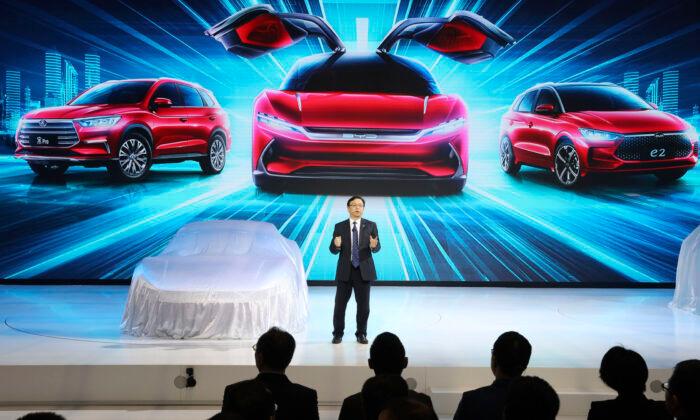BEIJING—China’s auto sales fell 5.8 percent from a year earlier in October as demand for electric cars plunged, an industry group reported on Nov. 11, extending a painful squeeze in the global industry’s biggest market.
The Chinese auto market is on track to contract for a second year, dragged down by weak demand in the face of cooling economic growth and a tariff war with Washington.
Drivers bought 1.9 million sedans, SUVs and minivans, according to the China Association of Automobile Manufacturers.
Sales growth has been in negative territory every month since June 2018.
Total vehicle sales, including trucks and buses, shrank 0.6 percent to 2.3 million.
Sales of electric and gasoline-electric hybrid vehicles tumbled 45.6 percent to 75,000. Demand has been hurt by the end of government subsidies in mid-2019.
Beijing has spent billions of dollars promoting electrics sales. Regulators are shifting the burden to automakers by eliminating subsidies and imposing minimum sales quotas. That raises the cost to buyers.
The October figures were a small improvement over September’s 6.3 percent contraction and better than double-digit contractions in previous months.
Still, sales were off 11 percent in the first 10 months of 2019 compared with a year earlier.
Electrics sales still are up 10.1 percent for the year to date, reflecting strong first-half demand before the end of subsidies.
Sales of SUVs, usually a bright spot for the industry, were down 8.3 percent in the first 10 months of the year but CAAM gave no total. That was slight improvement over the 9.3 percent decline for the nine months through September.
Sales by Chinese brands were down 9.6 percent from a year earlier at 770,000. They lost 1.7 percentage points of market share to 39.9 percent.






Friends Read Free